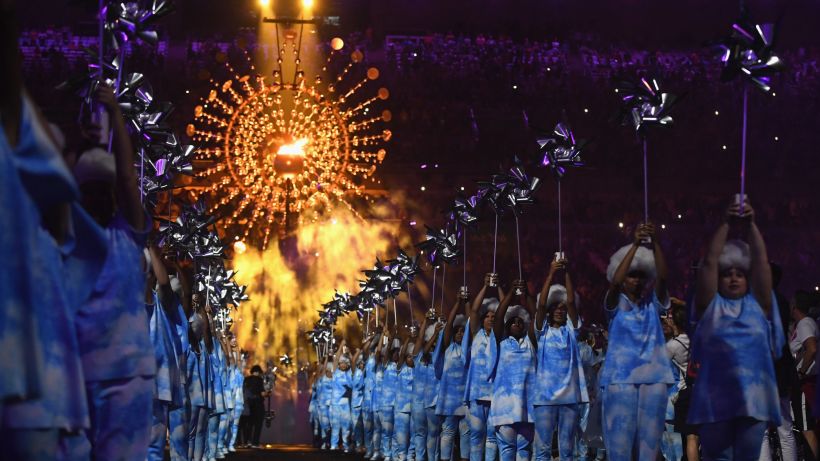Story highlights
Iran clinches gold in sitting volleyball
Photo finish in women's T54 marathon
As the events concluded after 11 incredible days of sport in the Rio 2016 Paralympics, the final day of action brought a blisteringly close women’s marathon, sitting volleyball gold for Iran and a fierce wheelchair rugby final.
Gold for Iran
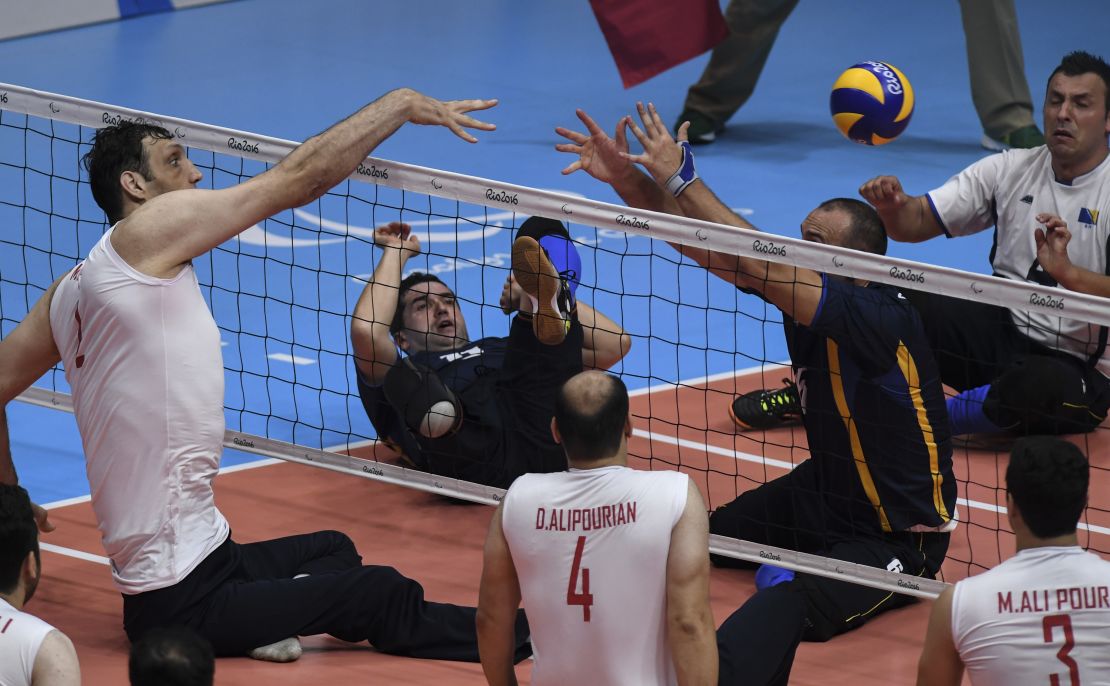
After the tragic death Saturday of Para cyclist Bahman Golbarnezhad, there was some solace for Iran as the men’s sitting volleyball team won an emotional gold medal against defending champions Bosnia and Herzegovina.
Iran was the favorite to win, having clinched five golds and two silvers in its seven previous Paralympic appearances.
The team includes setter Morteza Mehrzadselakjani, who towers over opponents at eight feet one inch tall – the second-tallest man in the world.
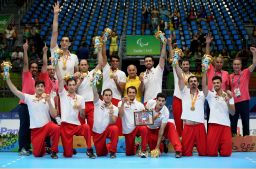
READ: Iran’s tallest man sits to play volleyball
After losing the first set, Bosnia and Herzegovina fought back in the second to beat their rivals 25-21. But Iran showed its class in the third and fourth, scoring decisive victories to win the gold medal three sets to one.
It’s the country’s eighth gold this Games.
Iran’s flag in the Paralympic village has been flown at half-staff since the death of Golbarnezhad Saturday, following a crash in the men’s C4-5 road race.
READ: Day ten: Fatal crash mires end of Games
A moment of silence will be held during the closing ceremony to commemorate his life.
Medley of marathons
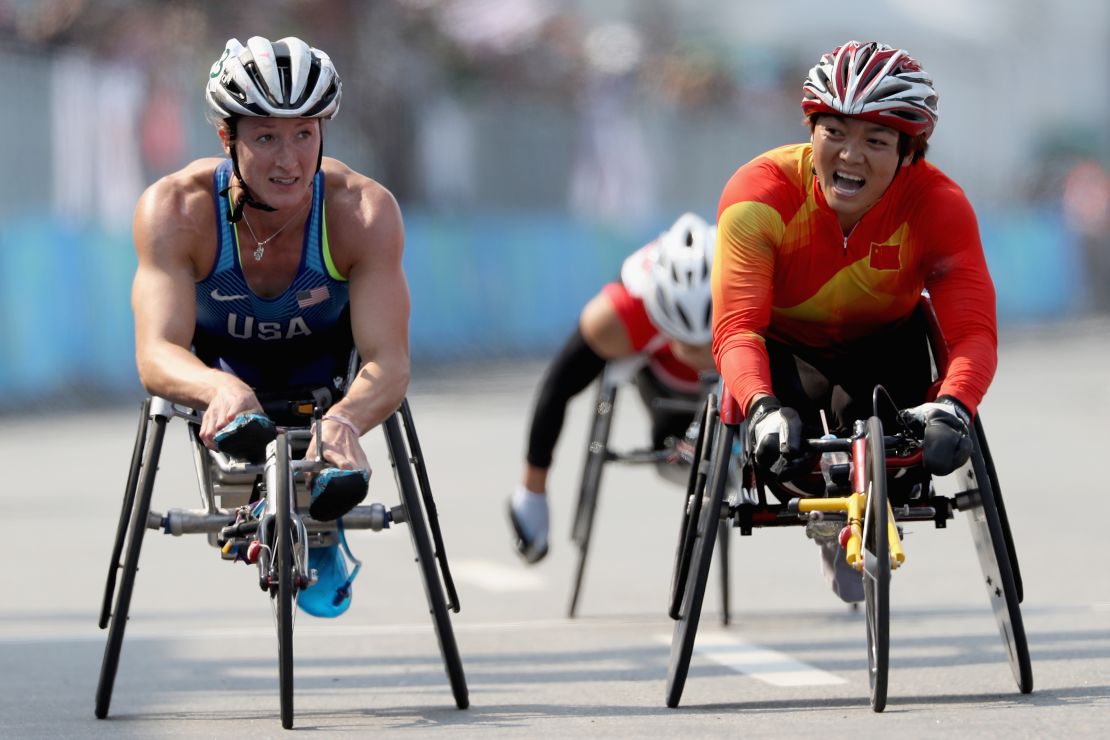
The women’s T54 race – for athletes in a wheelchair – ended in a photo finish, with the first seven athletes crossing the line within three seconds of each other.
The USA’s Tatyana McFadden missed out her fifth gold at Rio by a fraction of a second, clocking the same time – 1:38.44 – as winner Lihong Zou of China.
Teammate Amanda McGrory won bronze in 1:38.45.
McFadden has won two golds and four silvers out of her seven events at Rio, after the disappointment of Team USA’s disqualification from the 4x400m relay.
In the men’s event, Switzerland’s Marcel Hug jostled neck and neck with Australia’s Kert Fearnley before putting in an extraordinary burst of energy to soar over the finish line a few meters ahead.
It is Hug’s fourth medal at Rio, having won gold in the T54 800m and silver in the 1,500m and 5,000.
Great Britain’s David Weir ended his disappointing time at Rio by bowing out after the first time check, one eighth of the way through the 40km race.
Weir was hoping to defend his four golds from London 2012 – including the marathon – but has left the Games with none and announced his retirement from the sport.

The women’s T12 race, for athletes with visual impairments, was won by Spain’s Elena Congost, who improved upon her silver from London 2012 to clinch her first gold medal.
Fourth-placed Jin Zheng, who competes in the T11 category – for the most severe sight impairments – set a world record for her class, finishing in 3:19.46. In April, the 25-year-old smashed the London marathon world record, taking 13 minutes off the previous mark.
Murderball
Wheelchair rugby, also known as “murderball” for its ferocious and aggressive style of play, reached its dramatic conclusion in the gold medal match between Australia and the US.
The Australian defending Paralympic and world champions include Ryley Batt, who’s sometimes referred to as the LeBron James of wheelchair rugby and widely regarded as one of the best players the sport has ever seen.
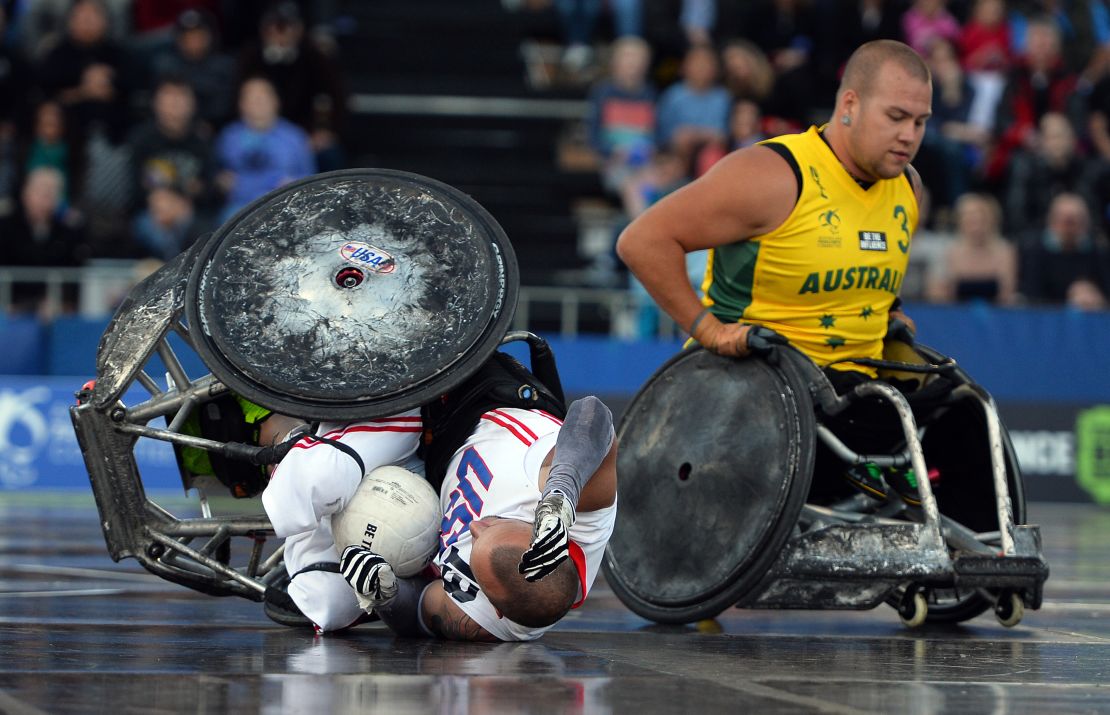
However the US, which won gold in 2000 and 2008, didn’t give in without a fight, hitting and blocking the Australians to reach a 49-49 tie at the end of the fourth period.
After the first overtime, the teams were deadlocked in yet another tie – 54-54.
Finally in the second overtime, the Australian “Steelers” managed to take the lead, edging a goal past their rivals to win 59-58, with Batt scoring the decisive point – his last of 27 in the game.
Born without legs, Batt moved around on a skateboard until the age of 12. It was around that time that he saw a demonstration at school that inspired him to take up “murderball” and by 15, he was competing at Athens 2004, the youngest Paralympic rugby player at the Games.
“It’s not every day that you can go out in a wheelchair and bash up other guys in wheelchairs,” he told the Rio 2016 website. “It’s pretty good fun.”
